عربی AR
Several times in the last decade, I travelled to the then-closed Kingdom of Saudi Arabia as the Executive Vice President at the Huntsman Cancer Foundation.
In 2019, the Kingdom opened its doors and actively started encouraging tourism as part of its Vision 2030 strategic initiative. Increasing numbers of visitors are now discovering that Saudi Arabia is unexpectedly diverse.
There are mountains, beaches, coral reefs, grasslands and forests. Let alone the largest sand sea in the world. It has a human history that stretches back in time more than 7000 years. Tourism and travel bridge people, time, and cultures, leading to deeper understanding.
With the encouragement of HRH Princess Reema Bint Bandar Al Saud, Saudi Arabian Ambassador to the United States, I recently spent 10 weeks traveling throughout Saudi Arabia.
I explored the Kingdom with the purpose of photographing and writing about Riyadh, AlUla, Madain Saleh, Tabuk, Neom, Jeddah, Taif, Jubbah, Hail, Al Khobar, Dammam, Al-Hasa, and Abha in the Asir Region.
This is the first in a series of articles about the Kingdom. It begins in Southwest Arabia – The Asir Region.
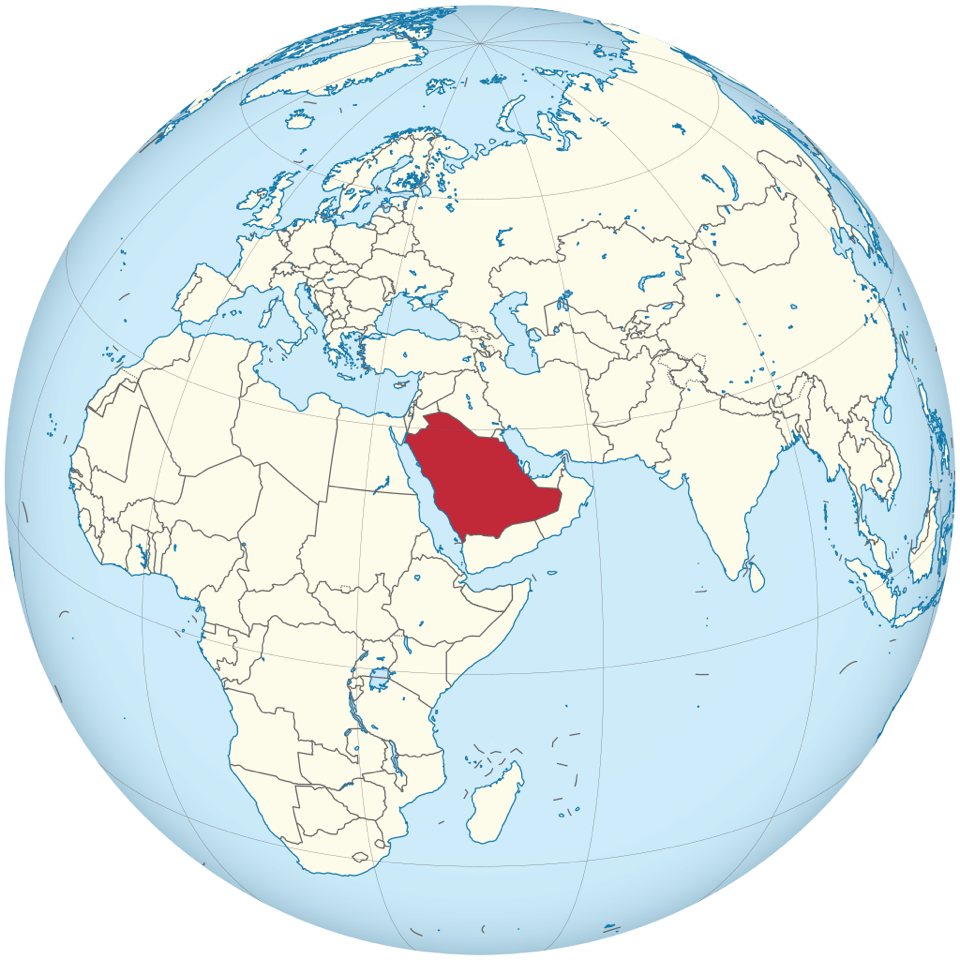
Saudi Arabia is approximately the size of France, Spain, Germany, Italy, United Kingdom (twice), Greece, and Portugal combined. In reference to the United States, its land area is roughly equal to all states east of the Mississippi River.
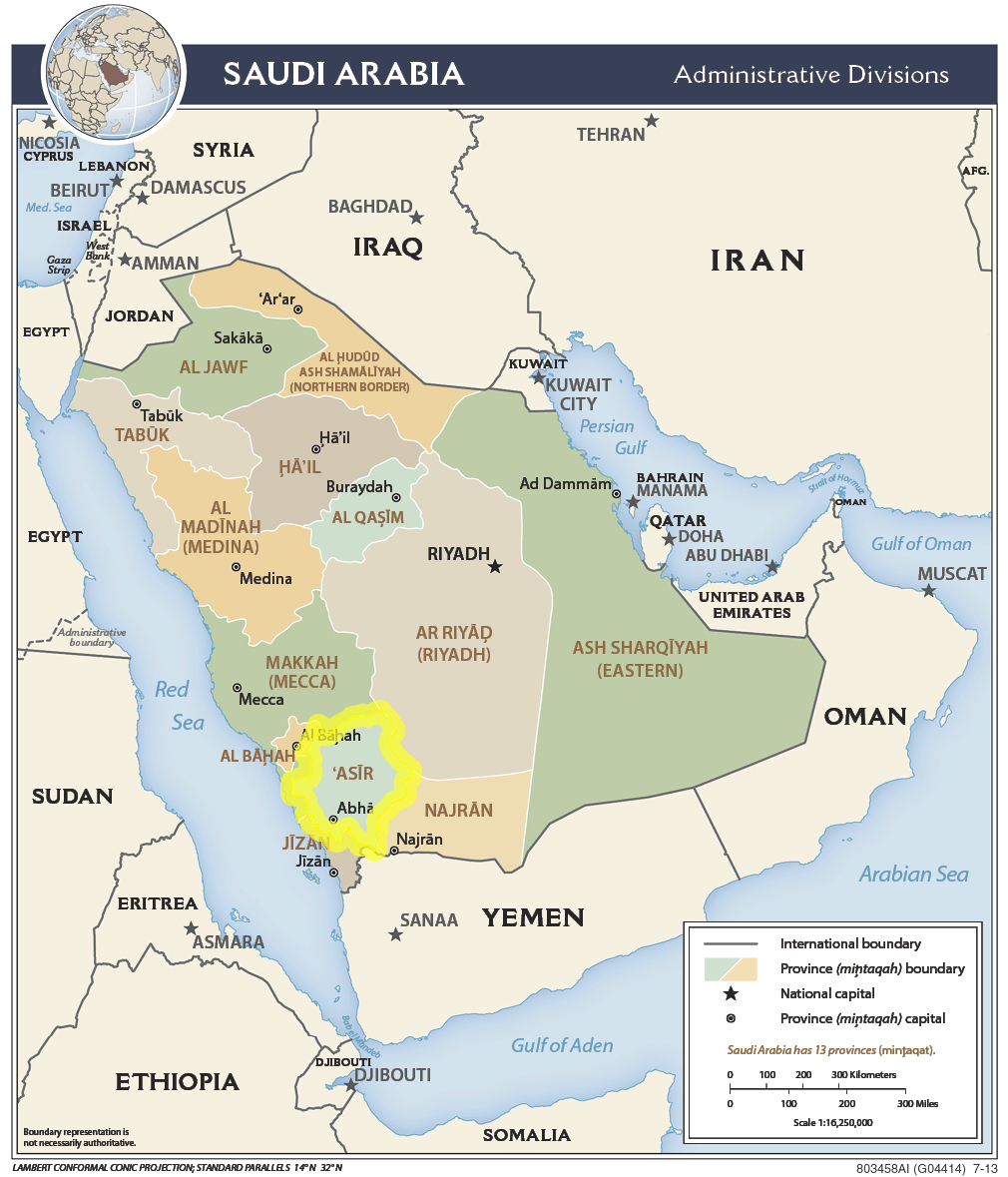
The area of modern-day Saudi Arabia formerly consisted of four distinct historical regions: Hejaz, Najd, Alhasa and Asir. The Asir Mountain range runs north to south, parallel to the southwestern coast of Saudi Arabia. Asir has a short border with Yemen and a coastline on the Red Sea. It is the fourth largest region in Saudi Arabia and encompasses four thousand villages. There are more than 2.2 million residents. Asir is the size of the country of Austria.

It’s spring in Southwest Saudi Arabia, and green buds are popping on the bushes. Bougainvillea of all colors thrive. Almond and cherry trees are in bloom.
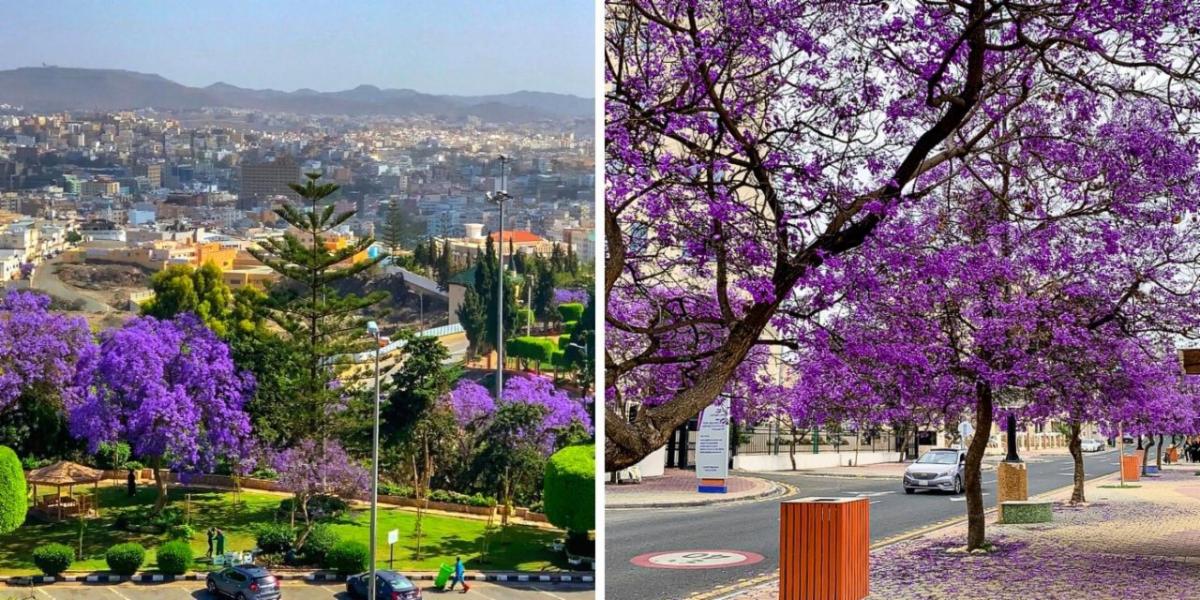
Jacaranda trees line streets in Abha, Saudi Arabia. Photos by Nourah Ayedh Alshahrani.
When I arrived in Abha, “The High City,” I reached out to the National Council on U.S.-Arab Relations’ International Advisory Board Co-Chairman, HRH Prince Abdulaziz Bin Talal Al Saud. (I am a member of the National Council’s Board of Directors.) His brother, HRH Prince Turki Bin Talal Al Saud, is the governor of the Asir Region.
Prince Abdulaziz called his brother. The next call was from a deputy in the Governor’s office: Would I join the Governor that evening at 8 pm in his forest camp? Of course.
My driver made his way through a checkpoint. I was greeted and escorted to a large tent where twenty men were seated. They all made eye contact with me, and were warm and welcoming. I greeted them with my right hand on my heart. In turn, each put his hand on his heart. A slight bow of the head. Tradition.
I was seated next to Rahmah Yahya Alrabeai, a professor and a Ph.D. candidate in geography at King Khalid University.
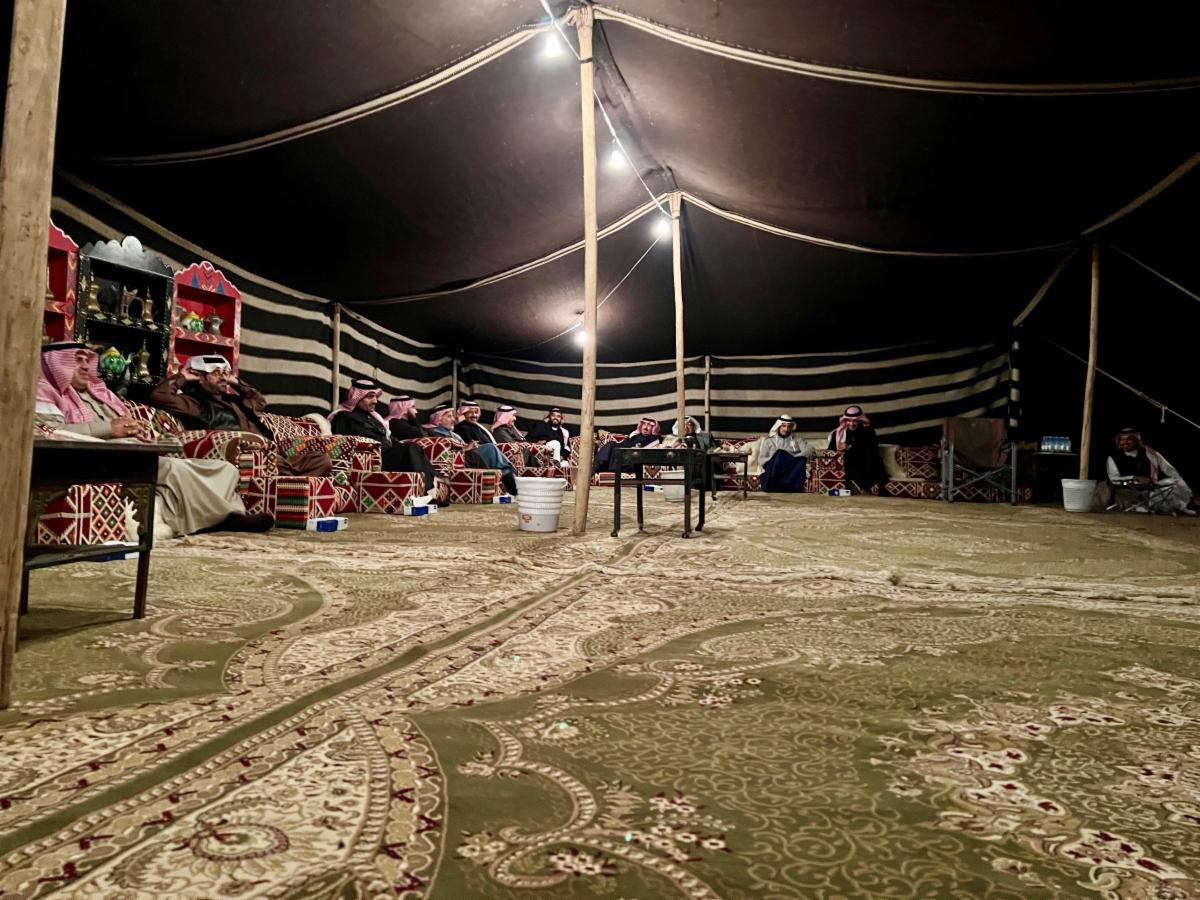
Our seats were draped in sheepskins. The design of the seating was a traditional sturdy red triangular pattern. The tent was lined in black goat hair. Rugs covered the sand. The tent was warmed by tables holding long-burning smokeless tube-shaped charcoal. A hard-black suitcase containing wireless radio communication equipment, office supplies, and personal items was set by the corner seat.
Continue reading »



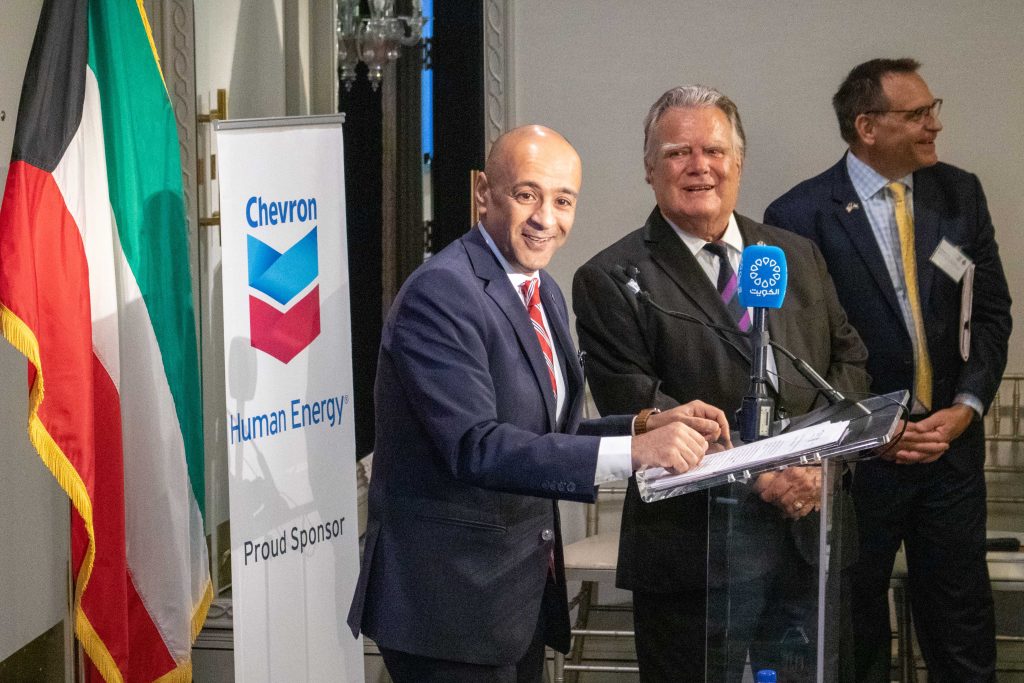
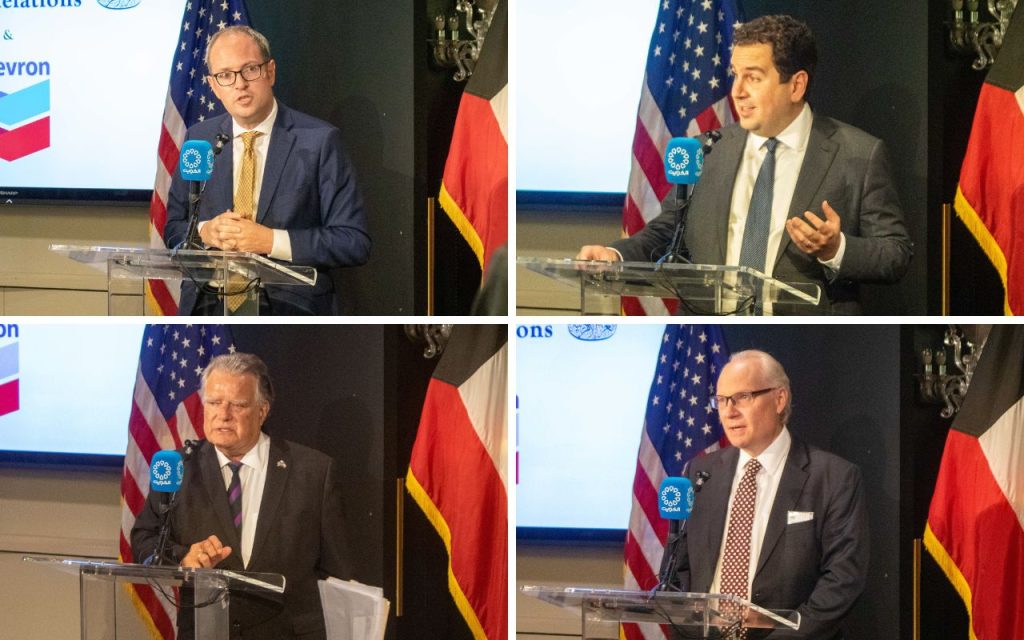






You must be logged in to post a comment.